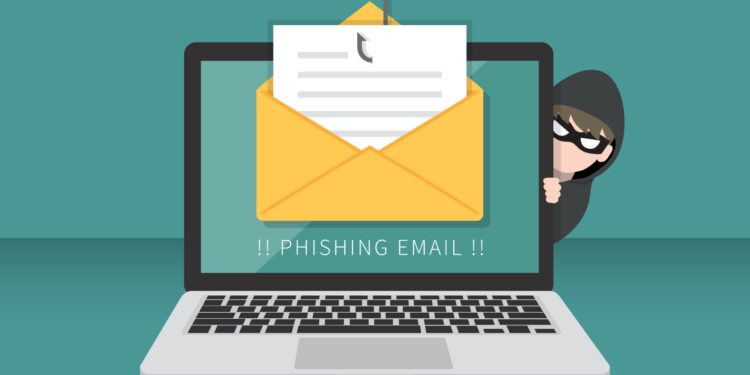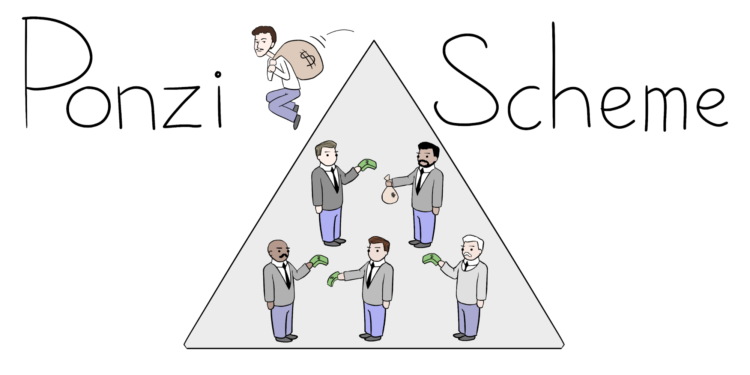Bitcoin (BTC) recovery guide
A cryptocurrency, often known as crypto, is a digital currency that operates as a means of exchange via a computer network and is not reliant on any central authority, such as a government or bank, to support or maintain it.
This is one of the most frequently asked questions on the internet. This is owing to an increase in cryptocurrency theft in recent years.
This theft is committed in a number of devious methods that you may not think are fraudulent. Because these frauds are committed by cyber criminals, it is only natural to engage a hacker to assist with the recovery.

This post will go through the most dependable methods for recovering stolen bitcoins when you need to.
How to Recover your Stolen Bitcoin
- Contact a professional recovery expert
- Provide detailed information about the theft (wallet addresses, amount stolen, time of theft).
- Wait for the stipulated recovery time.
- Check your wallet for recovered bitcoin.
How to Recover Your Stolen Bitcoin
When bitcoin is taken from your wallet, it creates a route via the blockchain.
This transaction ID may be used to identify the wallet that got your bitcoin and track it down.
You have a chance to retrieve it because the criminal is unlikely to spend it immediately away.
Regardless of the quantity, you may retrieve your stolen bitcoin. You can report the theft to the police and the platform’s security staff, but they will be powerless to intervene.
The easiest approach to recover your bitcoin is to find a trusted recovery service. Only a real recovery specialist can help you recover your stolen bitcoin.
That is why I suggest hacker recovery services, which you may employ.
How to Get Your Bitcoin Stolen
There are various ways to lose your cryptocurrency; here are a few examples:
Phishing Attacks
Phishing attacks usually include the use of bogus emails, text messages, or websites that appear to be from a trustworthy source.
The messages or websites sometimes include a link that, when clicked, takes the victim to a bogus login page or another site designed to acquire sensitive information such as passwords, credit card numbers, or personal information.
Phishing attacks may be extremely complex and difficult to detect, and they are frequently effective because they play on people’s faith in recognised organisations as well as their knowledge with common internet practises.

To avoid phishing attempts, be cautious when receiving unsolicited messages or clicking on links, and always confirm that the sender or website is real before revealing any critical information.
Read Also –
Bitcoin Margin Trading Guide & Best Exchanges -2023 Updated |
Malware
Malware comes in a variety of forms, including viruses, trojan horses, ransomware, and spyware. It spreads by a number of means, including phishing emails, malicious downloads, infected files, and hacked websites.

Once a machine has been infected with malware, the attacker can do a variety of harmful acts, including stealing sensitive data, encrypting files and demanding ransom payments, leveraging the system to launch additional assaults, or remotely managing it as part of a botnet.
Ponzi Scheme
A Ponzi scheme is a deceptive investment strategy in which returns are given to earlier investors using new participants’ contributions rather than actual profits made by the programme.
A crypto Ponzi scheme is a Ponzi scheme that focuses on cryptocurrencies, typically promising substantial returns on investment in a short period of time.
Crypto Ponzi schemes can take many different shapes, but they always include a corporation or someone providing a cryptocurrency investment opportunity with huge returns.
These returns are frequently unreal and are not based on any underlying value or earnings.
Instead, gains are distributed to early investors through fresh investor investments. The scam eventually fails because there aren’t enough new investors to keep up with the rewards to previous investors.
Unfortunately, crypto Ponzi schemes have become more widespread in recent years, capitalising on the euphoria and excitement around cryptocurrency.

To prevent being a victim of a Ponzi scheme, it is critical to conduct comprehensive research and exercise care before investing in any bitcoin offer.
Compromised SMS verification Process
This strategy is designed exclusively for those who do bitcoin transactions. Because most (if not all) of these sites require users to have two-factor authentication enabled on their accounts, fraudsters focus on intercepting SMS texts used for verification.
This breach might occur via a multitude of methods, including wiretapping, voice phishing, SIM card cloning, and cloning. When your cryptocurrency wallet is compromised, they use these SMS codes to “recover” or obtain access to it.
How to Hire a Hacker to Recovery your Stolen Cryptocurrency
As previously said, the only option to retrieve your stolen bitcoin is to hire a legitimate hacking firm. Finding a legitimate hacker has always been a challenge.
Can I Recover Money from a Scam Cryptocurrency Ponzi Investment?
It’s a waking nightmare to realise you’ve been duped out of a huge quantity of money or digital currency.
While there is no assurance that you will be able to retrieve all of your bitcoin, you can improve your chances.
Five Ways to Recover Your Money from a Scammer
1. Find the Transaction ID Code.
Blockchain technology records all bitcoin transactions, even those that are fraudulent.
Without this ID code, a fraudster cannot steal your bitcoin.
The ID code helps you and the authorities to track the money. The codes might help to expedite the inquiry and increase your chances of recovery.
Where can I locate the transaction ID code?
Look for the distinct string of numbers and letters indicating crypto transit from one address to another.
You and the investigators will be able to follow sending and receiving addresses, transaction amounts, and fees once you obtain them.
This information can assist in catching the fraudster as soon as feasible.
2. Keep an eye on your credit score
Check your credit record as soon as you realise you’ve been duped. If any bogus accounts have been established in your name, it will notify you.
The information in such accounts can assist you in tracking down the fraudster and perhaps recovering your dollars.
Of course, it’s also a good idea to notify the credit bureau about the scam.
This will keep the thieves from starting a new credit account in your name.
3. Record the Scam
It is critical to maintain your cool and adequately chronicle the situation. Keep track of any emails, text messages, and other communication from the fraudsters. Prioritise the following data:
transaction ID numbers, details regarding the scam, including the perpetrators, how the fraud began, the amount of money stolen, exchanges involved, and when the scam occurred; and any other pertinent information.
Secure access to the accounts from which the monies came is also required.
Investigators will want you to show that you held the compromised cryptocurrency account so that they can act more rapidly.
4. Inform the Crypto Exchange
A cryptocurrency exchange is where all cryptocurrencies are purchased, sold, and exchanged.
The precise exchange where the fraud occurred should be aware of what occurred. Inform the exchange managers that your money was stolen by a fraudster.
Your account’s security might be enhanced by the exchange platform. Of course, utilising decentralised finance eliminates this danger entirely.
This phase does not ensure recovery, but it encourages exchange administrators to seek for trends that will aid the recovery.
5. Inform law enforcement about the scam.
Report the fraud to financial law enforcement and the relevant law enforcement authorities in your region.
Report any fraudulent crypto activity to the Securities and Exchange Commission (SEC), the Commodity Futures Trading Commission (CFTC), and the Federal Trade Commission (FTC) if you are a US citizen.
This is not guarantee that you will recover all of your cash, but the government will make every effort.
Even if authorities fail, they have been made aware of the fraud and may put in place safeguards to hopefully prevent it from happening again.
Using Litigation to Recover Cryptocurrency
Litigation involving cryptocurrency and blockchain is a new field of law.
Every week, private persons and the federal government bring lawsuits against cryptocurrency exchanges.
Due to the significant expense of pursuing blockchain litigation, many firms will not take a case unless it is worth at least $100,000 or $200,000.
As a result, many people who have been affected by a fraudulent crypto exchange or investment offer join together and file class action lawsuits.
This allows them to help everyone who has been touched.
More than 90% of bitcoin disputes are settled out of court.
A resolution, on the other hand, can take two to three years and cost tens of thousands of dollars in legal expenses.
Before Investing in Crypto, Ask the Right Questions
Before investing real money in a cryptocurrency or ICO, the SEC suggests asking yourself the following questions:
- Who is issuing or sponsoring the product?
- Where is my investment money going?
- What will the investment money be used for?
- Will I receive financial statements?
- Is there trading data?
- How, when, and at what cost can I sell my investment?
- Does the investment comply with securities laws?
- Do I have legal protections if something goes wrong?
The SEC recommends that you do not invest in a token, no matter how enticing it appears, unless you have received satisfactory answers to these concerns.
The only certain method to recover from a disastrous bitcoin investment is to avoid it altogether.
Speak with a Litigation Attorney If You Have Been Scammed.
Even cautious investors might be drawn into fraudulent schemes by the Wild West attitude of the cryptocurrency and ICO marketplaces.
| Disclaimer – The information provided in this article is solely the author’s opinion and not investment advice – it is provided for educational purposes only. By using this, you agree that the information does not constitute any investment or financial instructions. Do conduct your own research and reach out to financial advisors before making any investment decisions. |

















